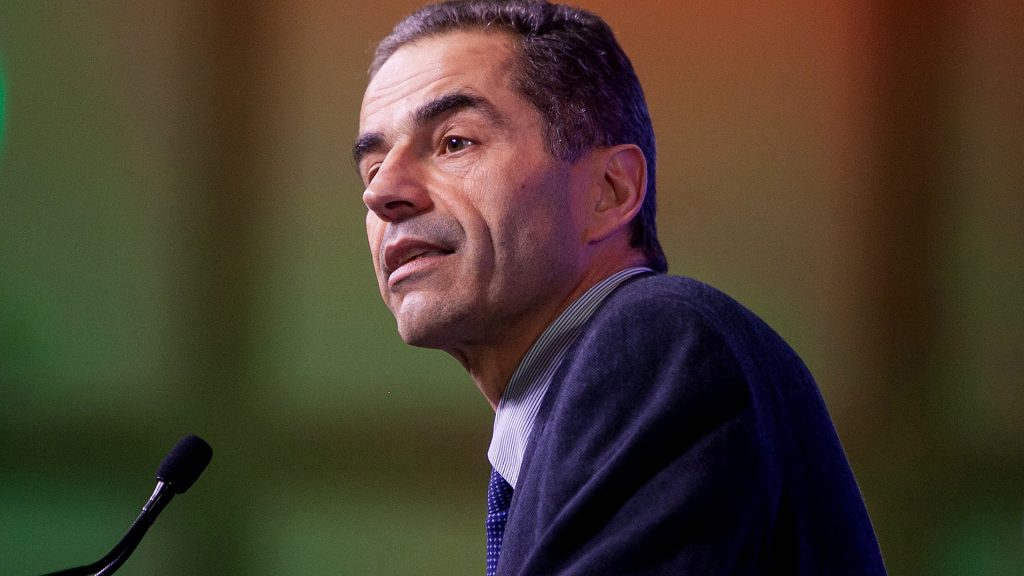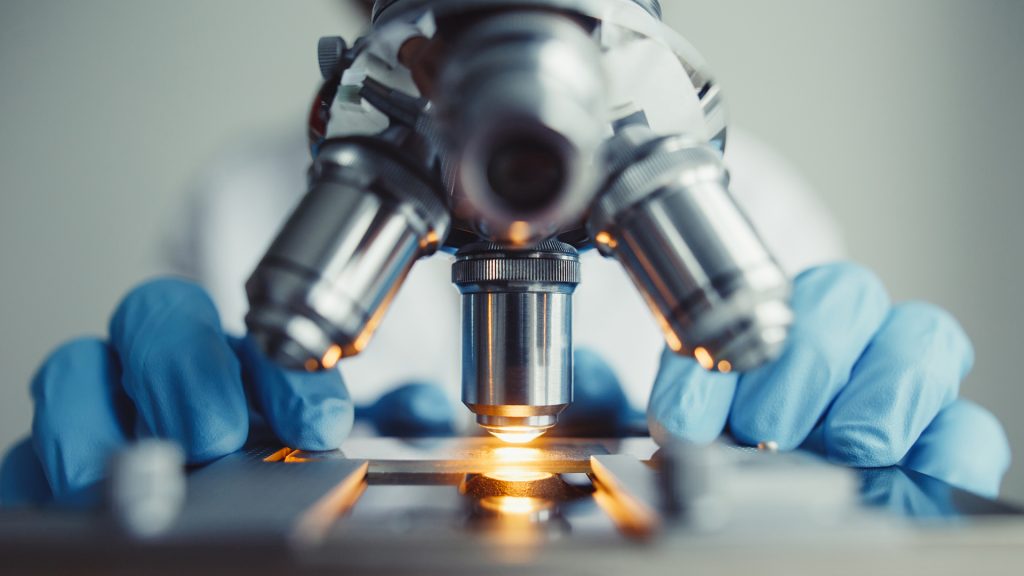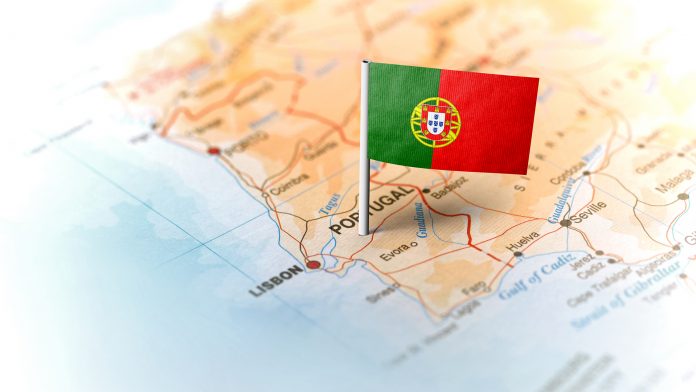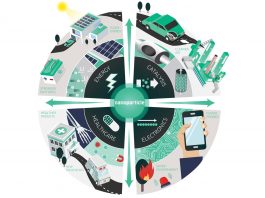Portuguese Science Minister, Professor Manuel Heitor, spoke to The Innovation Platform‘s Clifford Holt about both his own country’s future R&D ambitions and how the Portuguese presidency of the Council of the EU will be driving the EU’s strategic agenda in a sustainable way post-COVID-19.
The presidency of the Council of the EU rotates among Member States every six months, during which time the presidency chairs meetings at every level in the Council, helping to ensure the continuity of the EU’s work in the Council.
Currently, Portugal has the presidency, and the country is working in line with its motto: ‘Time to deliver: a fair, green and digital recovery’. The presidency programme focuses on five main areas, which are in line with the goals of the EU’s strategic agenda:
- Strengthen Europe’s resilience;
- Promote confidence in the European social model;
- Promote a sustainable recovery;
- Speed up a fair and inclusive digital transition; and
- Reaffirm the EU’s role in the world, ensuring that this is based on openness and multilateralism.

The Innovation Network’s International Editor, Clifford Holt, spoke with Portugal’s Minister of Science, Technology, and Higher Education, Professor Manuel Heitor, about both his own country’s ambitions in terms of future R&D and how the Portuguese presidency will be driving the EU’s strategic agenda in a sustainable way post-COVID-19.
To begin by looking at the Portuguese Presidency of the European Union in an R&D context, could you tell me more about the Presidency’s three main focus areas: the science-employment-resilience relationship; the need for open and collaborative research to be fostered to break through the frontiers of knowledge; and the emphasis on research careers and increasing the professionalisation of research activities?
When a country assumes the Presidency of the Council of the European Union, they essentially take on three roles: one is political and diplomatic; another is programmatic; and the third concerns legal and legislative issues. The most important of these is always the political, and so the three focus areas that you have mentioned have a clear political insight with regards to Europe’s needs moving forwards.
In the context of the trio of presidencies – after Germany and before Slovenia – Portugal has decided to focus on ‘action’, as Germany has taken care of many of the necessary legislative acts. This action will see us launching programmes like Horizon Europe, Erasmus, and the European Space Programme, amongst others, and we are therefore developing all the necessary political and diplomatic taskforces to ensure that these programmes go ahead.
This programmatic effort, of course, will entail challenges for both Europe at large and individual Member States, in particular with regards to the differences and links between national and European funding. Throughout Europe, for the very first time we are launching the so-called ‘Recovery and Resilience Package’, with Next Generation EU – a €750bn temporary recovery instrument to help repair the immediate economic and social damage brought about by the coronavirus pandemic – and we are trying to ensure that there is more awareness of how Horizon Europe can be used alongside this, as well as alongside the Structural Funds. This is not a new discussion; Portugal has been in a dialogue with other countries around Horizon Europe for the last two years, with a lot of emphasis being placed on the amount of bureaucracy that has been evident in previous Framework Programmes, as well as on the development of synergies among programmes, in addition to issues like the Seal of Excellence. We hope that this will enhance the accessibility of the Structural Funds in conjunction with Horizon Europe.
In most countries, Next Generation EU will be associated with large national funds, particularly from innovation agendas, and will be used to change and restructure the economy there based on knowledge. There is thus a lot of potential here and this is critical because, in the coming months, the European Parliament and Commission will conclude the legal act for the so-called ‘institutional partnerships’ included in Horizon Europe. In political terms, this means we will be arguing that the regulatory framework for the partnerships to be funded through Horizon Europe need to be seen in relation to the significant impact that the funded projects under Next Generation EU can have. This is therefore not only a political statement; it has implications on the regulatory work that will be done in the coming months between the Commission and the Parliament and which needs to be assessed and supervised at the Council level by the Portuguese presidency.
With regards to the issue of research careers, we have put forward a political proposal to discuss this issue, and all Member States will be invited to outline their own conclusions, which are essentially recommendations to the Commission. As part of our presidency, we are placing an increased emphasis on ‘open observation and reporting methods’, which are crucial to fill the knowledge gaps in terms of ‘stock’ and ‘flows’ of researchers, as well as how research careers function and evolve across Europe. Indeed, I believe that one of the key issues in Europe is that we have not been able to continuously map these careers out and we therefore simply do not know the current status and dynamics of careers, despite the fact that, in recent years, we have been able to map things like mobility. We therefore need more data, and we have asked the European Commission to make more of this data available and, moreover, to launch observation exercises so that we are able to further emphasise the need to develop better research careers in all Member States. At the same time, we also need to reorient and strengthen the incentives for European university alliances as test beds for good practices.
This is important because Slovenia will take over the Presidency of the Council of Europe after Portugal, and after Slovenia, France will take over. France has already announced that it will place an emphasis on the European universities concepts, and so we are trying to now push the idea that these institutions should be test beds of good practices, particularly for joint recruitment of young researchers/teachers, so that they enable the best possible research careers in a true European context, where people can spend their careers working and learning in different countries.
At the moment, the concept of a true European research career does not exist, and that is something that needs to change. And while, over the last 20 years or so, we have been increasing the number of scientists being trained in Europe, this is simply not enough because many of them decide to move to other countries to further their careers, and there is a significant imbalance in terms of the number that leave compared to the number who arrive.
My understanding is that joint recruitment could facilitate a step change here by decreasing this so-called ‘brain drain’, particularly in those Member States where this is a more pronounced issue. Indeed, this has the potential to replace the brain drain with what is known as ‘brain circulation’, which will see Europe’s scientists moving from country to country, but within Europe instead of outside of it.
You have argued that synergies between national and European programmes are essential moving forwards. How would you like to see this being achieved in the renewed European Research Area (ERA)? How can these synergies be fostered in the frame of the Recovery and Resilience Plans? How will Portugal address this?
One of the best things that we have been able to launch in Europe, particularly between structural and centralised funds through Horizon 2020 and Horizon Europe, is the Seal of Excellence. However, that is not yet fully working. The idea behind this is that when a project has been granted access to one fund, it has direct access to the other; it does not need to be assessed again, at least in part. This decreases the bureaucracy and facilitates multiple funding mechanisms for good projects, which is perhaps the best way to promote the synergies between different funding sources because, at the moment, they are implemented in very different ways, either in Brussels or in the Member States. Of course, this is public money, and as such we need to follow public procurement rules; but we can decrease the amount of energy and resources that are being devoted to the preparation of proposals.
In Portugal, we are preparing large agendas for innovation in industrialisation, which will be an open process and will be diverse enough to cover areas such as space, mobility, health, the modernisation of the agro-food sector, and so on. If the projects are approved within the Next Generation EU programme, then they should be able to easily access additional funds from Horizon Europe and structural funds and facilitate opening effectively new markets, enabling new and more jobs and new research. In this way, we are working to ensure that Portugal’s impact will increase in the years to come.

EU – a €750bn temporary recovery instrument to help repair the immediate economic and social damage brought about by the coronavirus pandemic © iStock/matejmo
What are your hopes for the way in which Horizon Europe – and instruments such as the EIC etc. – will help Europe to emerge from the COVID-19 pandemic stronger and more resilient? What needs to be done to ensure success?
To look at things in a broad way: the coronavirus pandemic can be seen as a result of an imbalance between economic and human activity and Nature – something that is becoming increasingly evident through things like climate change. We know that COVID-19 started in animals and was passed to humans as a so-called zoonotic disease, and this is a clear result of the new geological era, the so-called ‘Anthropocene’.
It is for this reason that the new Green Deal is so important, as the proposed green and digital transitions are perhaps the only way forwards. However, in light of emerging scientific evidence and the many reports that have been published in recent years, it is clear that we need new knowledge; we simply do not know enough about how to approach these transitions in a way that will create more jobs. We need institutional innovation because we currently live in a world of very discipline-driven institutions and our problems are very horizontal and across disciplines, which means that we need more collaborative networks; and we need new observation methods, particularly those which make use of high-resolution images from low orbit satellites.
Moving forwards, there should thus be a combination of new research, and new forms of institutional innovation alongside collaborative arrangements and new observation methods. However, this requires, amongst other things, new incentives, open collaborative research, and the attraction of talent; we need to invest in people, and the strengthening of the ERC is absolutely critical to attracting more and excellent people to Europe. We also need them to develop spin-offs and intrapreneurial activities, and that is where the EIC plays a key role.
The main focus needs to be placed on people; we need to attract more scientists to Europe. Science attracts talent and the landscape to train new scientists if adequately integrated with higher education, and universities in particular. And while the ERC works very much in the public domain, there is an increasing role to be played by the business sector. And Europe therefore created a new instrument last June, the so-called ‘EU taxonomy for sustainable financing’. Its implementation will be a critical tool for the future of the banking industry in Europe, and if it is taken on-board properly by Member States, the European Investment Bank, and the European banking industry, then it could drive European businesses towards the goals of the Green Deal because, in the future, any firm that needs to access funding and credit from the banking industry will need to follow this green taxonomy, which is very stringent in terms of the requirements each company needs to follow.
Sustainable financing and accounting standards will drive business to hire new skills and talent. This will open new ‘job markets’ and, above all, new and better jobs for researchers. Finance and controlling areas will recruit scientists, engineers, anthropologists, sociologists, and other experts across all disciplines if the green transition is effectively to be taken seriously!
In other words, the new ‘EU taxonomy for sustainable financing may be a catalyst towards increasing skilled employment and business R&D. We will only achieve the green transition with more knowledge, and this requires business R&D which, in practice, means employing skilled people. The idea here is thus to create more and better jobs for Europe’s sustainable activities, and this needs funding, which will be provided to companies if they follow the new European taxonomy.
The challenges are, of course, enormous as we approach the green and digital transitions, but the opportunities are also huge, because Europe is very well situated when compared to most of the rest of the world in terms of our current way of life and the green and sustainable transition we need to foster.
To return to the debate around research careers, you have argued that this “must be associated with key policy discussions for Europe. In particular, it can only be effectively addressed in terms of the need to increase the level of public and private investment in R&D throughout all European regions.” How would you like to see this investment being leveraged? And what policy areas need to be highlighted?
As European citizens at large and with regards to governments in particular and also European industry, we need to take the target of the 3% of GDP spent on R&D seriously. I do not believe it is possible to discuss research careers without increasing current levels of investment in R&D, and that means, as we have previously discussed, investing in people, in their training in higher education institutions and, naturally, in their careers.
The question, however, is how to raise the necessary investment, either from the public or private sectors. We are aware that the challenges businesses face are much larger than those experienced by the public sector, and that is the reason why instruments such as the European taxonomy for sustainable financing could be very interesting in terms of putting ‘pressure’ on markets and fostering the creation of new companies investing in R&D, which means employing skilled people and engaging them in innovative projects.
From the public sector side, we would hope that, as a key part of our democratic regimes, governmental public expenditure is based on what citizens want that money to be spent on. As such, this needs to be combined with sustainable development.
We know, however, that what we have been doing for the last 20 years has not worked. When we look at the amount invested in R&D at the European level over the last 20 years, it is clear that it has been somewhat stagnant, at around 19 to 20% of European GDP (with notable exceptions such as Germany and some small countries like Portugal since 2016, where R&D investment levels have recently increased significantly). We therefore also know that a ‘business as usual’ approach will not be sufficient moving forwards, and so we need to increase our investment. The coronavirus pandemic has demonstrated the need for science; it has shown that science both creates jobs and also has a very clear societal benefit in terms of health, and it is my hope that this, combined with the need for the green transition – without which we will almost assuredly see more pandemics in the future – will provide us with the opportunity to bring the public and private sectors together and for them to recognise their joint responsibility for this process.
Alongside this, we also have a new young generation which is increasingly aware of such issues and which is calling for the redesign of the markets to new models which are more sustainable and which avoid the ‘business as usual’ attitude. The future is therefore promising.

To look at Portugal specifically: moving forwards, Portugal hopes to double its participation in Horizon Europe in comparison to H2020, attracting €2bn for R&I and tripling the number of students in mobility in Higher Education. This is an ambitious target. How is achieving it being approached, and what are the main points raised in the PERIN Strategy?
In policymaking, we need to have ambitions and visions, and this is a vision. That being said, it is a vision that has been seriously constructed based on our experience. In Horizon 2020 over the last seven years, we raised some €1.1bn and also increased our participation. In H2020, funding awarded to Portuguese projects accounted for 1.65% of the overall budget, in comparison to 10 years ago, where we were awarded just 1.2%.
To achieve this, Portugal has seen over 20 years of continuous public investment in excellent research capacity and the creation of a number of relevant networks throughout Europe. In addition, over the last four years we have considerably restructured our innovation ecosystem via a diversification process which means that we now have a diversified set of institutions, from academic research labs to a new set of labs with industry, so-called ‘collaborative labs’ (CoLABs), as well as a number of technology and engineering centres that are very close to the marketplace. In other words, public policies in recent years have focused on strengthening specialisation, with increasing institutional diversification and densification of our innovation landscape. At the same time, we have funded an entrepreneurial ecosystem. We are therefore better prepared now than we were ten or even five years ago.
However, while Portugal has been able to create a wide range of small businesses, we still face great challenges to create more significant industrial players at the European or international level. As such, part of our funding from the Recovery Plan will aim to build the critical mass needed in our industrial and research landscape to create effective consortia geared towards exports, which will also take advantage of our position in the Atlantic.
I am sure that Portugal is not alone in developing such visions and strategies. However, one important issue in the Portuguese strategy is that we want to compete with the best, and I believe that the last 20 years has seen us prepare for this new vision by strengthening our competitiveness in the international R&D landscape and that has resulted in us aiming to double our participation in Horizon Europe in comparison to H2020.
Are there any areas that you hope will continue in the next trio of Council of the European Union presidencies, Slovenia, and perhaps beyond?
Through the trialogues we have agreed on how certain issues will be approached. For instance, when Germany had the Presidency it was decided that it would complete the legal issues and the legislative processes at the European Parliament. We, therefore, now have the responsibility of launching Horizon Europe and concluding the legislative action at the partnerships level. But in between, there is the evolution towards a renewed European Research Area where there are essentially two instruments that should be put into practice under Slovenia’s presidency.
France will have the Presidency after Slovenia, of course, and it is important for France to maintain the emphasis on the European University Consortia which, in our view, should increasingly become testbeds for true European research careers and true European best practices in terms of collaborative arrangements between academia, the public and the private sectors.
Space is also an area that deserves particular attention, and I believe that future presidencies should continue to promote what we call ‘European New Space for People’, particularly in terms of orienting space systems for people in an economic and social context. We increasingly use space-based technologies in our daily lives – from Galileo to the Internet – and the idea of a ‘new space’ would see us view space in a different way. Space is no longer to be monopolised by a few large government agencies alongside a very few large companies; it will be accessible to all.
Portugal’s presidency can play an important role in promoting this idea of ‘New Space for People’ by opening up access to space, developing micro-launchers, establishing a set of new space ports in Europe, and by enabling space as an emerging future business for everyone, including start-ups. This latter point can be achieved by exploiting the opportunities presented by Europe’s digital markets and by making use of Earth observation and navigation capacities, as well as satellite-based communications.
We believe that the presidencies that follow us, in particular the French presidency, will play a critical role here, too, in terms of continuing to promote the concept of ‘New Space for People’ in Europe.
Professor Manuel Heitor
Minister of Science, Technology, and
Higher Education
Portuguese Republic Government
mheitor@tecnico.ulisboa.pt
Tweet @govpt
https://www.2021portugal.eu/en
www.portugal.gov.pt/en/gc22/ministries/science-technology-and-higher-education/minister
Please note, this article also appears in the fifth edition of our quarterly publication.









